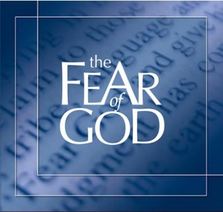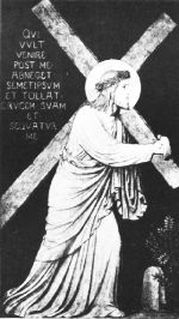“I have an unquenchable desire to slow down and find my life going deeper in my walk with Christ. I want to meet him in the depths of my soul, away from the stress and press of everything on top. A relationship with Christ is the key to fulfilling our deepest longings. All of life is about filling the void that sin and separation from him have created within. Filling the emptiness with piles of things, earthly friendships, satisfying experiences, and sensual encounters ultimately proves to achieve less than what we had hoped for. Christ is the only one who fits” (Joseph M. Stowell).
Job found that God outshines anything else. In Job 28-31, he wrote that the fear of the Lord outshines earthly riches, pleasant circumstances, opinions of other people, lusting after women, injustice against the poor, ungenerosity and merciless.
Earthly Riches
Job said that man searched the deep for metal ore far away from people. He tunneled through the rock to sell all its treasures and bring hidden things to light. Man did not comprehend the worth of wisdom and understanding. It was not found in the deep and cannot be bought with gold or precious stones. The price of wisdom was beyond rubies. Only God knew where it dwelt because He saw everything under the heavens, established the force of the wind and measured out the waters. He appraised, confirmed and tested wisdom. The fear of the Lord is wisdom and to shun evil is understanding (Job 28:1-28). The fear of the Lord outshines earthly riches.
Pleasant Circumstances
Job longed for the days when the blessings of intimate fellowship blessed him and his children. His path was drenched with cream and the rock poured streams of olive oil. Leaders and young men respected his counsel and spoke well of him because he rescued the poor and was a father to the needy. Job thought he would die in his own house and glory would remain fresh on him (Job 29:1-25). The fear of Lord outshines pleasant circumstances.
Opinions of Other People
Men younger than Job mocked him even though he disdained their fathers who little strength and influence. Their sons spat in Job’s face, laid snares for his feet and destroyed him. Job’s dignity was driven away as by the wind and his safety vanished like a cloud. God reduced him to dust and did not answer his prayers. Job wept for those in trouble and grieved for the poor. When Job hoped for good, evil came. The suffering, churning inside and loneliness never stopped (Job 30:1-31). The fear of the Lord outshines opinions of other people.
Lusting After Women
Job made a covenant with his eyes not to look lustfully at a girl since God saw his ways. God weighed him with honest scales to determine if he walked in falsehood and deceit. If his eyes led his heart or his hands were defiled, then others could eat what he sown. If his heart was enticed by a woman, then his wife could sleep with other men. Sin must be judged by fire that burned to Destruction to uproot his harvest (Job 31:1-12). The fear of the Lord outshines lusting
after women.
Injustice Against the Poor
God made Job accountable for injustice toward his menservants and maidservants if they had a grievance against him. If he denied the desires of the poor, kept bread or clothing to himself and failed to use his influence in court for the benefit of the fatherless, then he deserved having his arm broken off at the joint. The fear of the Lord prevented Job from acting unjustly (Job 31:13-23). The fear of the Lord outshines injustice against the poor.
Ungenerosity and Merciless
If Job put his security in gold, rejoiced over great wealth and worshiped the sun or moon, then God would judge his sin as being unfaithful to Him. If he rejoiced over his enemy’s misfortune, not offered hospitality to strangers and concealed guilt in his heart because of fearing the crowd, then God would judge his sin. Job wished an accuser would put his indictment in writing before God to make him accountable. If he withheld payment to tenants in the fields, then briers and weeds instead of wheat and barley should grow (Job 31:24-40). The fear of the Lord outshines ungenerosity and merciless.
How can you apply Augustine’s statement, “To fall in love with God is the greatest of all romances; To seek Him, the greatest adventure; To find him, the greatest human achievement” regarding how the fear of God outshines things listed in this passage?







